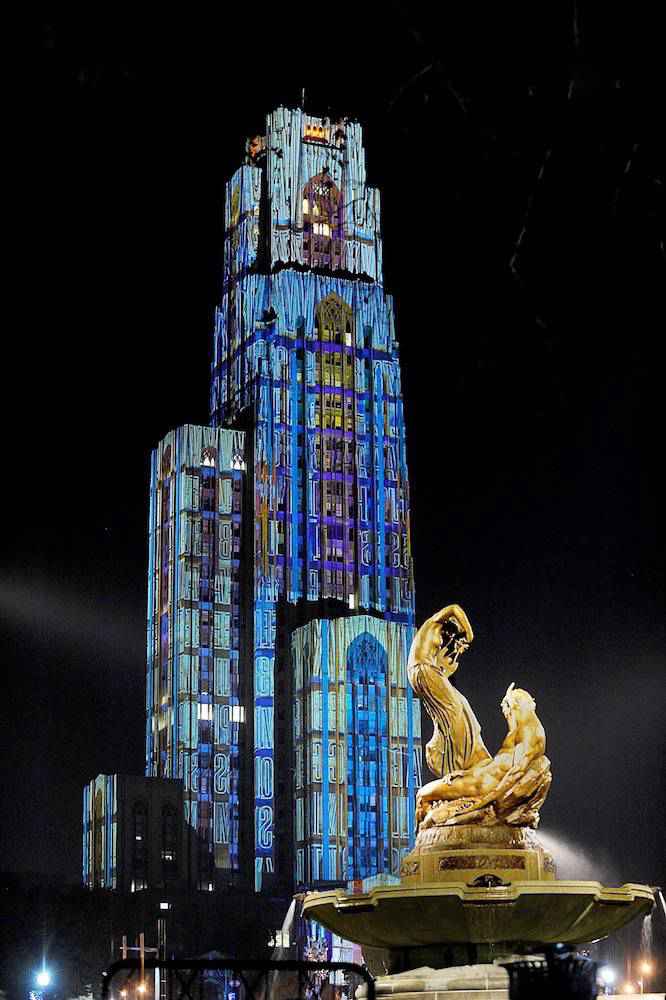
The professional standards and expectations
Click here to learn more about lab alumni
William Kepler Whiteford Associate Professor,
Principal Investigator, Lab Director
Graduate Student Researcher
CALPHAD-based ICME for Additive Manufacturing
Jan 2022 to present
Graduate Student Researcher
Alloy Design and Additive Manufacturing
October 2021 to Present
Postdoc Associate
Advanced Manufacturing and Characterization
June 2023 to present
Visiting Research Assistant Professor
Lab Associate Director
CALPHAD-based ICME and Process Design
April 2019 to present
Guest Researcher
Advanced Manufacturing and Design
June 2023 to Present
Visiting student
Functionally graded materials and additive manufacturing
October 2023 to present

The PMMD lab was established in Sept 2016, we have full access to all of the research sources at Pitt from additive manufacturing to materials characterization. Thanks to the start-up fund supported by the MEMS department, the lab has equipped arc-melter with the function of suction casting, thermal analysis, high-temperature heat treatment furnaces, and quenching dilatometer. We have our own workstation for high-performance computing in addition to the Pittsburgh Supercomputing Center (PSC) and Pitt center for simulation and modeling (SaM). It should be highlighted that we have very close collaboration with many industrial partners and national labs. For instance, Thermo-Calc software company supports us with VIP licenses for all of their products including Thermo-Calc, DICTRA, TC-Prisma and the most-updated databases. In addition, we send PMMD Lab students to these companies and labs for internship, training and collaborative research. Therefore, our students will gain experience in industry or national labs before their graduation. So far, we have been funded by different agencies, NASA, ONR, NSF and DOE and supported by different industrial companies.
The PMMD Lab was established at the University of Pittsburgh in September 2016.
One strong research focus in materials science at the MEMS department is hard materials, including alloys and ceramics. Our department materials science program is not big in terms of faculty numbers and student enrollment. However, almost all of our faculty focuses on hard materials, especially alloys. Since both mechanical engineering and materials science programs are in the same department, we have close collaborations between mechanical engineers and materials scientists. In addition, our department has extremely close collaborations with the UPMC and Medical School for biomaterials and biomechanical research. According to my personal opinion, our department ranking in materials science program is very much underestimated due to less focus on other types of materials besides alloys such as polymer and soft materials. In addition, it is hard to perform a fair evaluation due to the combination of mechanical engineering and materials science. Although we understand it is hard to avoid some downside effects on the superficial parts (In fact, many students only care about ranking rather than supervisor and research directions, when they apply for the Ph.D. program...), we try our best to take such an advantage with interdisciplinary research opportunities. Students at the MEMS department have such an extraordinary environment to study both mechanical and materials programs. The faculty works together very often for both mechanical and materials engineering research, and we believe there should not be a gap between these two important engineering disciplines.
At MEMS, we have many top-notch instruments for alloy research studies. For example, our high-temperature in-situ TEM is probably the only one of the two high-temperature in-situ TEMs that can perform using the regular TEM sample. We have ANSYS additive manufacturing lab housing five additive manufacturing machines, and 4 of them are for metals research. We also have EMPA (Electron Microprobe Analysis), which can perform accurate composition analysis of light elements, oxides and carbides. It is not common for materials science department having this kind of instrument (To the best of our knowledge, as of Dec 2016, Universities in the State of Illinois do not have, and the State of Wisconsin only has one for geological research).


University of Pittsburgh (commonly referred to as Pitt) is one of the oldest universities. It is a state-related research university located in Pittsburgh, Pennsylvania. It was founded as the Pittsburgh Academy in 1787 on the edge of the American frontier. It developed and was renamed as Western University of Pennsylvania by a change to its charter in 1819. After surviving two devastating fires and various relocations within the area, the school moved to its current location in the Oakland neighborhood of the city; it was renamed as the University of Pittsburgh in 1908. Pitt was a private institution until 1966 when it became part of the Commonwealth System of Higher Education.
According to US News 2020 ranking, University of Pittsburgh's is ranked as #18 in top public schools, #47 in Best Global Universities. UPMC (University of Pittsburgh Medical Center) has been ranked 13th in the U.S. News and World Report's annual listing of best hospitals for 2015-2016, marking the health system's 16th appearance on the magazine's honor roll of best hospitals. In materials and mechanical engineering research, we have many collaborations with UPMC regarding biomedical materials development. We learn from each other and promote an interdisciplinary research environment. The PMMD Lab has projects on developing the next generation biomedical alloys, and now is exploring collaboration with UPMC for clinical applications.
The ranking data are directly taken from internet resources
3700 O'Hara Street, Pittsburgh, PA 15261, US
(+1) 412 383 8092
weixiong@pitt.edu
Monday - Friday: 08 AM - 06 PM. Eastern Time